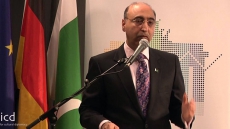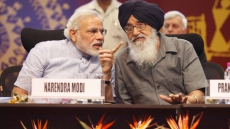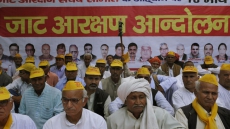In a landmark judgment, the Supreme Court on Wednesday prohibited the use of photographs of political leaders, including ministers, in advertisements issued by the government and its agencies, saying that it leads to promotion of a personality cult.
A bench of Justice Ranjan Gogoi and Justice Pinaki Chandra Ghose however permitted the use of photographs of the president, prime minister, Chief Justice of India and departed leaders, including Father of the Nation, in such advertisements.
Holding that the government advertisements in connection with an event along with the photograph of a state or party functionary has a tendency of associating that individual with the achievements sought to highlighted, the court said that such media blitz has a "potential of developing the personality cult" around such state functionary.
"Photographs, therefore, have the potential of developing the personality cult and the image of a one or a few individuals which is a direct antithesis of democratic functioning", said Justice Gogoi pronouncing the judgment.
"We are, therefore of the view, there should be an exception (in carrying the photograph along with the advertisement) only in the case of the president, prime minister and Chief Justice of the country who may themselves decide the question," the judgment said.
In this respect, the court departed from the recommendation of the N.R. Madhava Menon committee which had recommended publication of the photographs of the president, prime minister, governor or chief minister along with the advertisements.
The court said that the advertisements issued to "commemorate the anniversaries of acknowledged personalities like the Father of the Nation would of course carry the photograph of the departed leader".
Two NGOs had approached the court seeking directions to restrain the central and state governments from using public funds on government advertisements that were primarily intended to project individual functionaries of the government or the party in power.
While "approving and adopting" most of the recommendations of the Madhvan Menon Committee, the court did not accept recommendations on the appointment of an ombudsman, with regard to performance audit by each ministry and an embargo on advertisements on the eve of the elections.
Not accepting the recommendation for an ombudsman, it said: "We are of the view that for ironing out the creases that are bound to show from time to time in the implementation of the present directions and to oversee such implementation, the government should constitute a three member body consisting of persons with unimpeachable neutrality and impartiality and who have excelled in their respective fields."
Saying that it did not feel any necessity of performance/special audit as the "machinery available is adequate to ensure due performance as well as accountability and proper utilization of public money", the court said if government adhere to the "objects and parameters" mentioned by it, "we do not feel the necessity of imposing a special curb on government advertisements on the eve of the elections".




